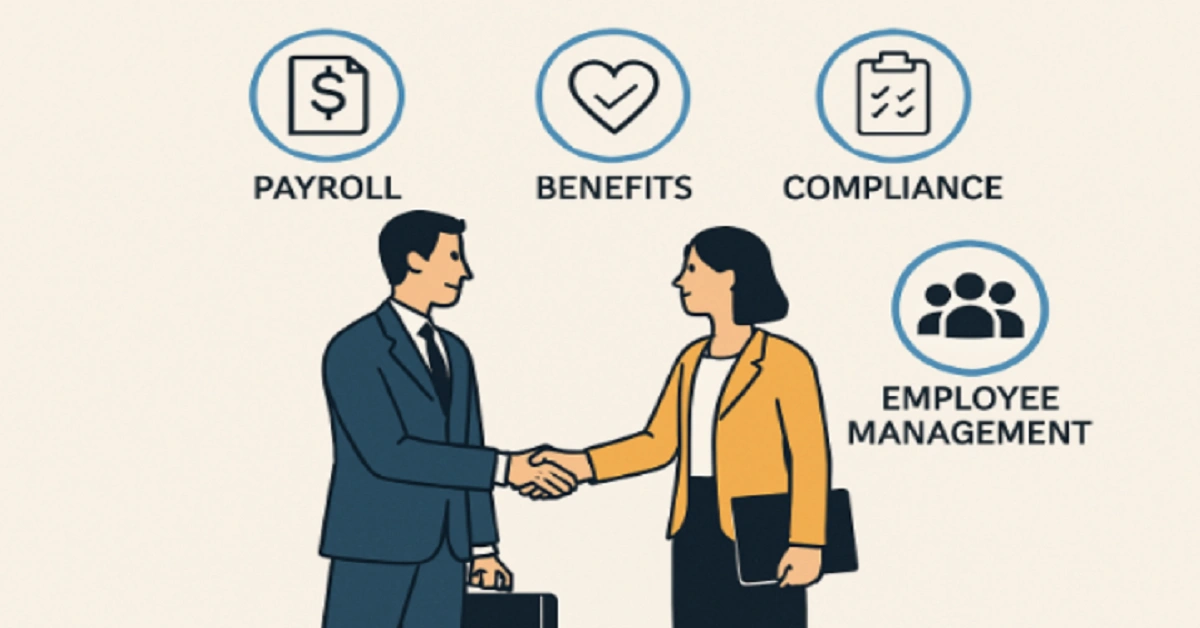What Is a Professional Employer Organization?
A Professional Employer Organization (PEO) is a firm that assists businesses in managing essential HR functions through a co-employment arrangement. This partnership allows companies to outsource complex HR tasks, including payroll processing, employee benefits administration, risk management, and compliance with labor laws, while retaining control over workforce management and day-to-day operations. For more information on PEOs and how they operate, you can visit https://www.adp.com/resources/articles-and-insights/articles/p/peo-what-is-a-peo-professional-employer-organization.aspx. At the core of PEO services is the co-employment model, which creates a legal relationship where the PEO shares specific employer responsibilities with the client business. Unlike traditional HR outsourcing, which often focuses on isolated tasks, a PEO integrates closely with a company’s workforce by acting as the employer of record for tax purposes and benefits administration.
The Growing Popularity of PEOs Among Small and Medium-Sized Businesses
Over the last decade, PEOs have gained traction among small and medium-sized businesses (SMBs) that lack the resources to offer competitive benefits or navigate increasingly complex labor regulations independently. There has been a marked rise in PEO adoption as business leaders recognize the operational efficiencies and reduced risk these partnerships provide.
For example, many growing companies have reported that leveraging PEOs allowed them to access Fortune 500-level employee benefits while simultaneously mitigating the compliance risks associated with rapid expansion. This level of support has made PEOs especially appealing to tech startups, professional services firms, and companies operating in highly regulated fields.
Core Services Offered by PEOs
PEOs deliver a comprehensive suite of HR services that go far beyond payroll processing. These include payroll management, tax filing, and risk management, administration of robust health and retirement benefits, employee onboarding, regulatory compliance, and guidance on workplace safety. By centralizing these critical functions, PEOs address pain points that are common to SMBs, such as the difficulty of keeping up with ever-changing employment laws and the demand for effective employee engagement programs.
The ability to provide such a broad range of integrated HR solutions is a primary reason why more businesses view PEOs as strategic partners rather than just vendors.
Benefits Of Partnering With A PEO
- Improved access to employee benefits: PEOs aggregate the buying power of their client base, allowing even small businesses to offer health, dental, vision, retirement, and supplementary benefits that usually require larger group sizes. This can significantly improve recruitment and retention.
- Administrative efficiency and cost savings: By outsourcing time-consuming HR functions, internal teams can focus on strategic initiatives, thereby increasing productivity and reducing overhead costs.
- Support with legal compliance and HR expertise: Federal and state employment laws are complex and ever-evolving. A PEO’s team of professionals can help businesses avoid costly penalties and litigation by ensuring compliance with labor regulations, wage laws, and employee relations protocols.
Potential Challenges and Considerations
While PEO partnerships offer myriad benefits, they also require careful consideration. The co-employment arrangement, in which the PEO serves as the employer of record for tax and benefits purposes, necessitates a high level of trust and transparency between the parties. Businesses must understand which responsibilities shift to the PEO and which remain in-house.
Choosing the right PEO partner involves evaluating the experience, reputation, service scope, and technology platforms of potential partners. Due diligence is critical, as not all PEOs are accredited or provide the same level of support.
How to Evaluate If a PEO Is Right for Your Business
Determining whether to partner with a PEO requires a clear understanding of your current business size, projected growth, and unique compliance challenges. Businesses with rapid scaling plans, distributed workforces, or limited internal HR capacity stand to gain the most from PEO relationships. Evaluating a PEO should include reviewing service agreements, fee transparency, technology capabilities, accreditation, and client testimonials.
- Assess whether your business faces frequent regulatory changes or complex employment law.
- Assess your ability to offer competitive benefits compared to peers.
- Request detailed proposals that address both direct and indirect costs of the partnership.
- Confirm the PEO’s history of compliance, claim handling, and customer service.
Steps to Partnering With a PEO
- Conduct a needs assessment to identify which HR functions will benefit most from outsourcing.
- Research reputable, accredited PEOs and compare services, fees, and technologies.
- Initiate a transparent RFP or proposal process, with attention to service level agreements.
- Work closely with your chosen PEO to onboard employees and transition payroll, benefits, and compliance over in a phased and well-communicated manner.
- Establish ongoing review and feedback mechanisms to ensure service quality and alignment with company goals.
The Future Outlook for PEOs and HR Management
The PEO industry is poised for significant growth as businesses increasingly prioritize workplace agility, compliance, and talent retention. Emerging technologies—like AI-powered HR analytics and centralized employee engagement platforms—are being integrated into PEO offerings, adding even more value. Furthermore, regulatory complexity at federal, state, and local levels is likely to increase, making outsourced HR solutions indispensable for businesses seeking scalability and resilience. As organizations continue to evolve, PEOs are expected to play a central role in the HR transformation journey, supporting future-ready workforces with innovative, compliant, and cost-effective solutions.
Conclusion
Professional Employer Organizations empower businesses of all sizes to overcome the HR challenges of the modern workplace. By delivering expertise in compliance, employee benefits, payroll, and risk management, PEOs offer strategic value and operational clarity. As regulatory complexity and the demand for exceptional workplace experiences grow, partnering with a PEO is becoming an essential option for companies seeking to strengthen their workforce and streamline administrative processes—setting the stage for sustainable growth and long-term business success.
